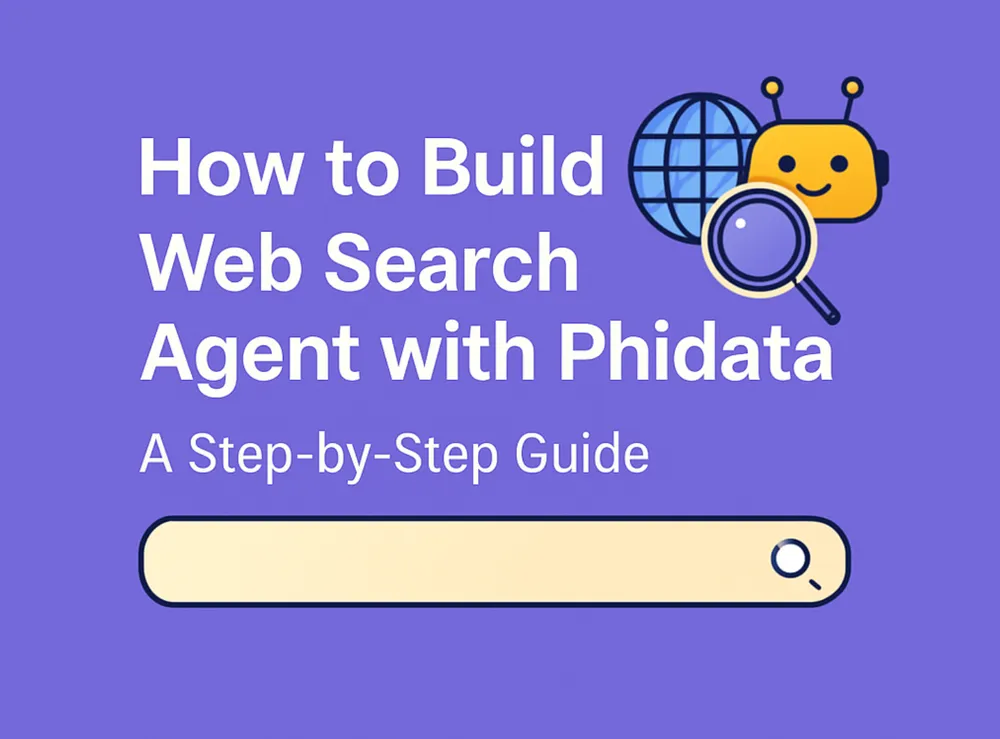Phidata is an open-source framework for building AI agents with capabilities like memory, tool use, and reasoning It’s model-agnostic and supports various large language models (LLMs), allowing developers to turn any LLM (like OpenAI GPT or local models) into a functional search agent. In this tutorial, we’ll walk through creating a web search agent using Phidata. The agent will be able to query the web (via a search API) and return answers with source citations. We’ll cover the setup, code structure, an example implementation, and tips for optimizing performance.
Overview of Phidata for Web Search Agents
Phidata simplifies the creation of AI agents by providing abstractions for models (LLMs), tools (for actions like web search), memory, and knowledge integration.For web search use cases, Phidata comes with pre-built toolkits such as DuckDuckGo, Google Search, SerpAPI, etc., enabling agents to retrieve real-time information from the web
Why Phidata?
Phidata is model-agnostic, so it supports different LLM providers (including OpenAI, local models, etc.). It also comes with built-in tools for common tasks like searching the web, extracting website content, or reading PDFs. By simply configuring your agent to use these tools, you can give it the power to find and summarize real-time information.
Setting Up the Environment and Dependencies
Before writing code, ensure your development environment is ready:
- Python Environment: Make sure you have Python 3 installed. It’s recommended to use a virtual environment for isolation. For example, on macOS/Linux you can create one with:










